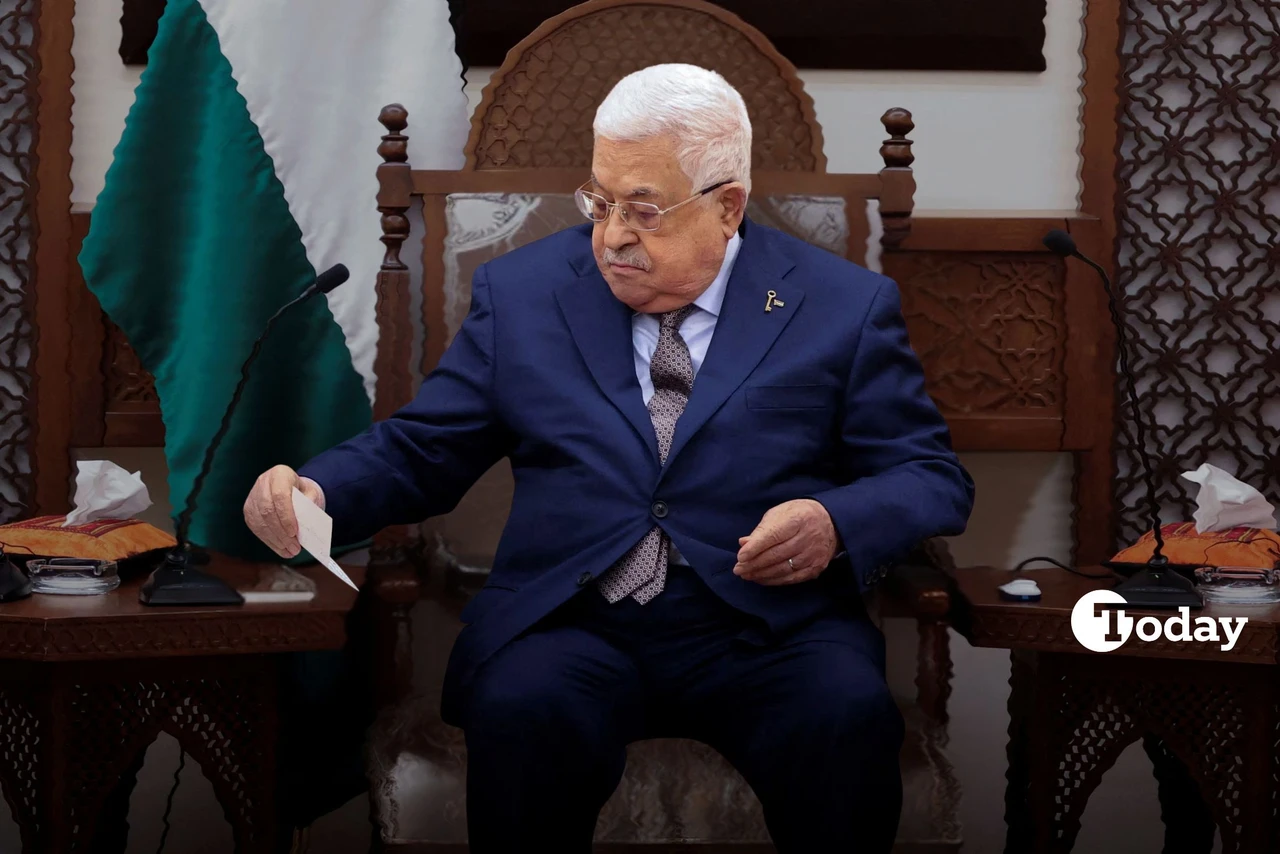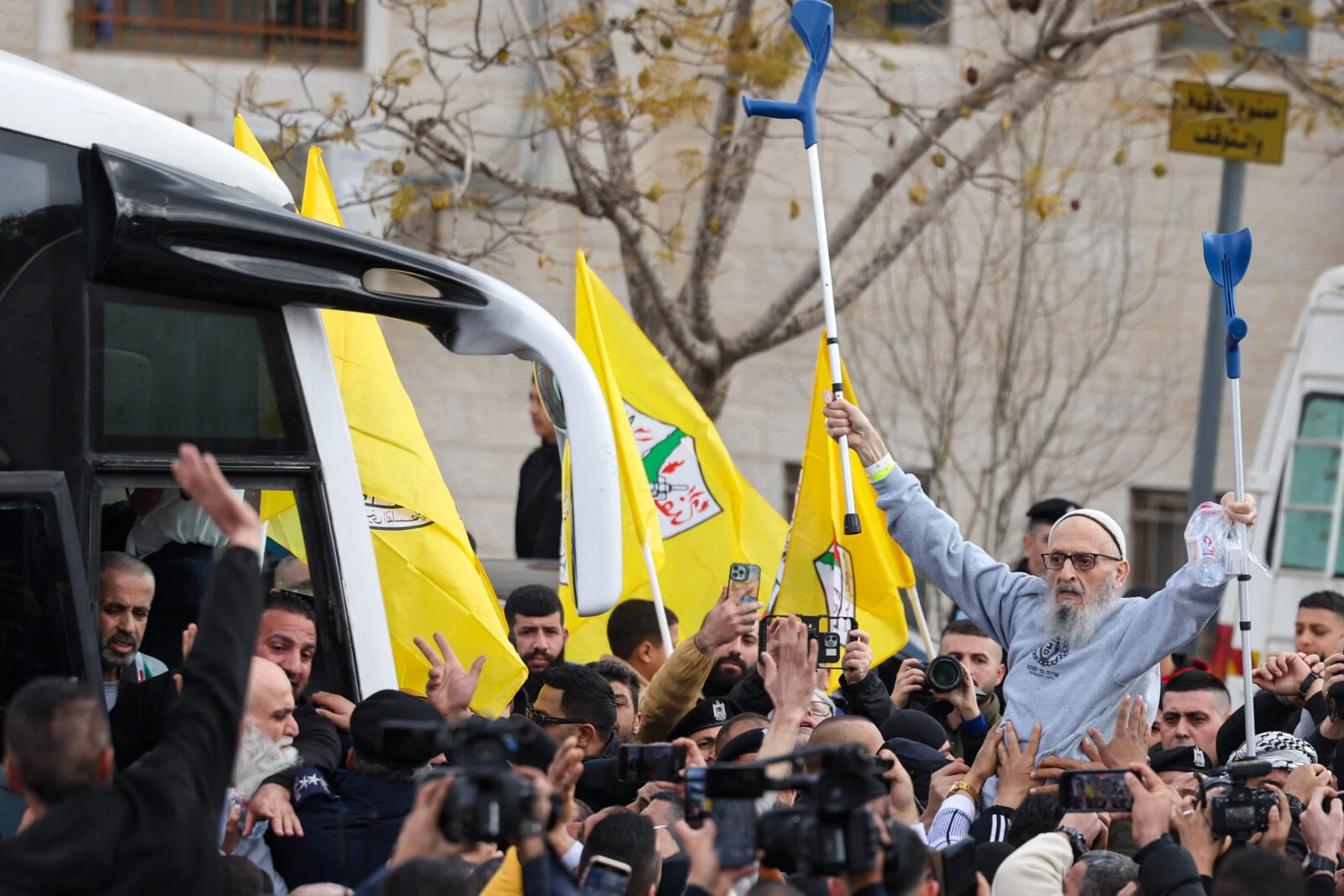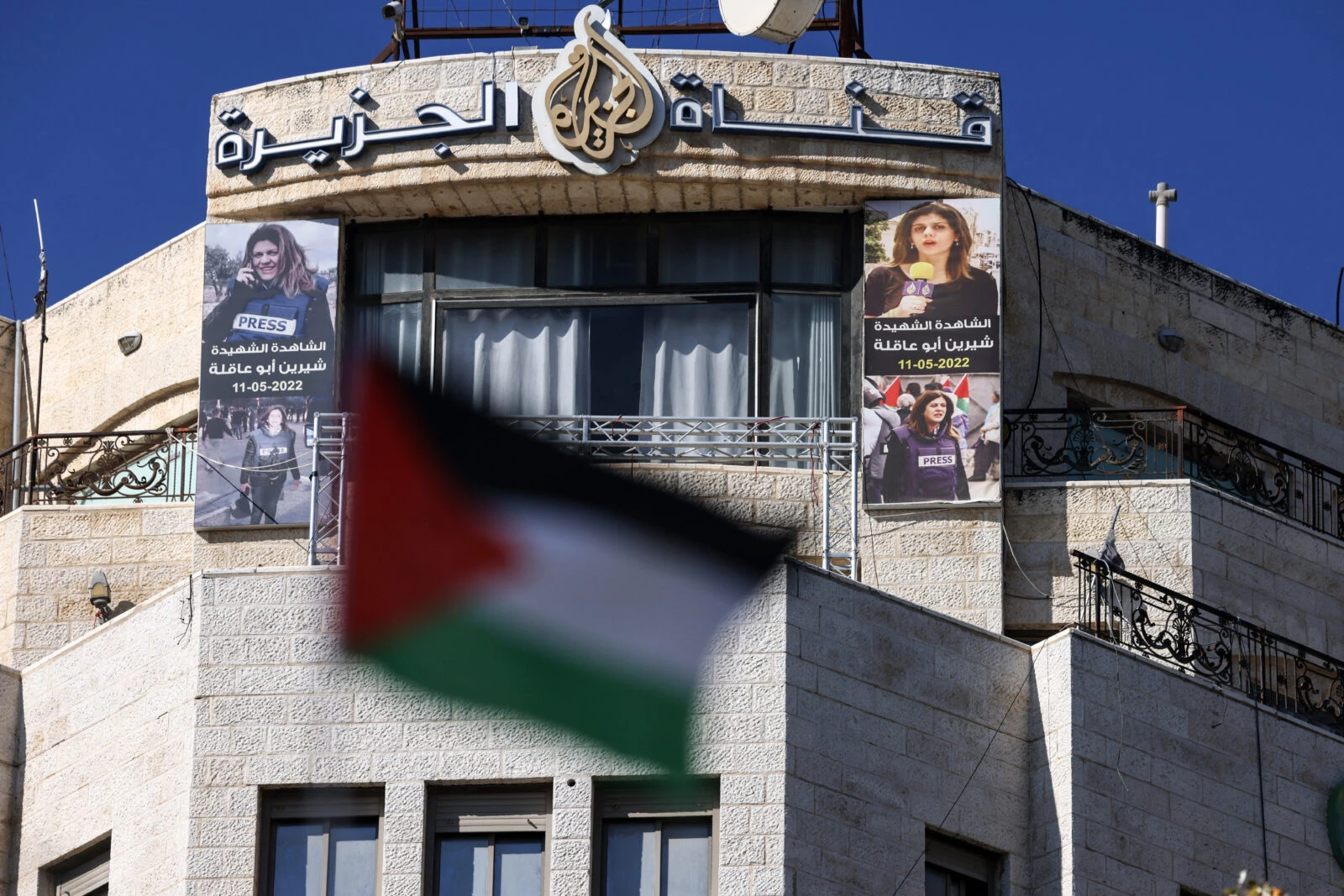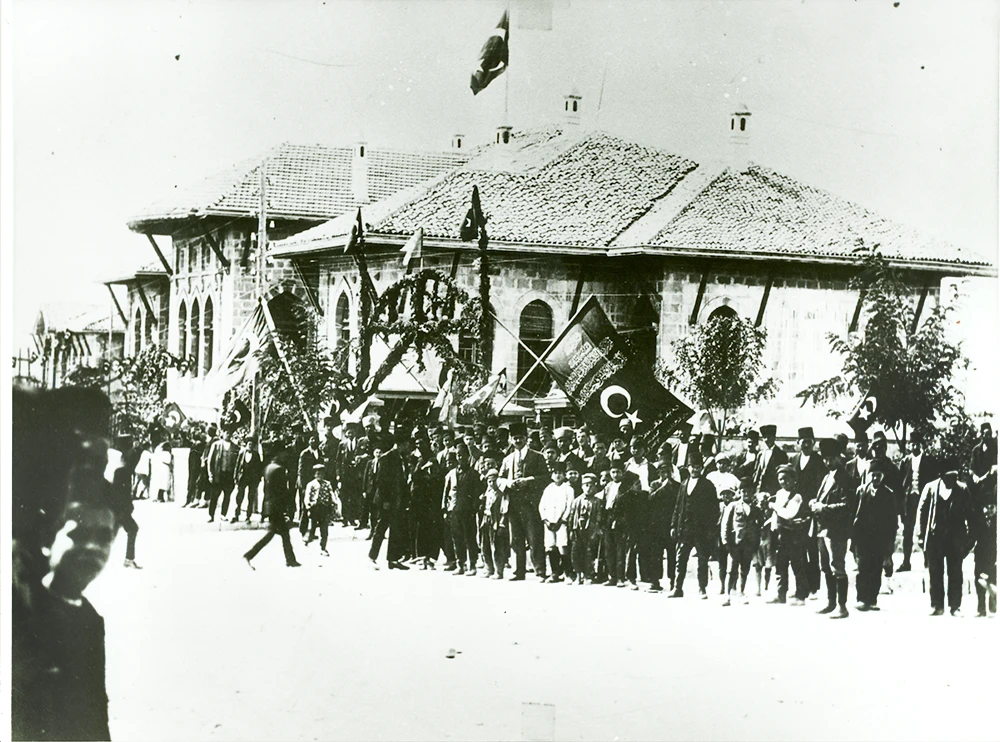Ramallah’s leadership void and the battle for the future
 Since his ascent to power, headlines in Israel, the Arab world, and the West have repeatedly predicted the end of Mahmoud Abbas’s era almost every year. Yet, he has consistently managed to hold on to his position.
Since his ascent to power, headlines in Israel, the Arab world, and the West have repeatedly predicted the end of Mahmoud Abbas’s era almost every year. Yet, he has consistently managed to hold on to his position.
Hamas is positioning itself to seize control of the Palestinian Authority (PA) for a post-Mahmoud Abbas era. According to an Israeli media outlet, Hamas has assured the families of high-profile Palestinian prisoners Marwan Barghouti and Ahmed Saadat that their release is expected in the second phase of a prisoner exchange deal, despite Israel’s objections.
The lack of a clear leadership structure in Ramallah is increasingly destabilizing, posing challenges not only for Palestinians but also for Israel. With President Abbas aging and facing growing health concerns, speculation is intensifying over his potential successors and the political shifts that could shape the region in the coming years.
The last general elections in Palestine were held in 2006, leaving Abbas without an electoral challenge for nearly two decades. In 2021, elections were scheduled but ultimately postponed due to heightened tensions and security concerns. This delay left unanswered questions about who could emerge as a viable alternative to Abbas. Two main political factions dominate Palestinian politics: Hamas and Fatah.
During the 2021 election discussions, Hamas, under Ismail Haniyeh’s leadership, proposed a technocratic government if victorious. Meanwhile, the Fatah movement displayed internal divisions, with figures such as Marwan Barghouti and Nasser al-Kidwa announcing separate electoral lists. Another significant political player, Mohammed Dahlan, backed a separate list supported by Gulf financial interests.
Ahmet Faruk Asa, a Palestinian affairs expert, emphasized the significance of these developments, stating, “The institutions of the Palestinian Authority, integrated with the executive and legislative bodies, have resisted adopting a new political approach in the post-Oct. 7 era, signaling a deeper societal and political rift.” Meanwhile, Mehmet Rakipoglu, a specialist in Palestinian Islamic movements, noted, “Abbas shares a similar determination to stay in power despite health challenges, much like Algeria’s former president Bouteflika.”

Potential successors of Ramallah
Among the possible successors, Marwan Barghouti remains one of the most prominent figures despite being imprisoned in Israel. His popularity has grown over the years, and he is widely seen as a unifying figure capable of bridging political divides. His name frequently appears in prisoner exchange discussions, further solidifying his image as a leader who could command widespread support.
However, other contenders are also positioning themselves. Dahlan, with his strong ties to the Gulf and Western leaderships, continues to seek a leadership role. He has signaled that, if given the opportunity, he would prioritize diplomatic engagement with Israel, the U.S., and other regional actors. However, his past associations and the legacy of 2007 remain significant obstacles to gaining broad public trust.
“Dahlan’s leadership potential depends largely on external interventions,” Asa noted, “and his ability to rebuild credibility among Palestinians is a major challenge.”
Hamas, meanwhile, has experienced a surge in support, particularly following the incidents of October 7. The group’s influence in the West Bank has grown as many Palestinians become increasingly disillusioned with the PA. Asa highlighted this shift, stating, “Hamas has capitalized on the growing frustration with the PA, and if elections were to be held, their candidates would likely emerge as strong contenders.”
Abbas’s recent moves indicate an effort to maintain political continuity. He has designated Rawhi Fattouh as his temporary successor should he become unable to fulfill his duties. Fattouh, a moderate politician, is expected to uphold the existing political framework and facilitate elections within three months if he assumes power. This decision signals an intention to preserve the status quo rather than usher in a significant political shift.
Hussein al-Sheikh, the Secretary of Fatah’s Central Committee, and Majed Faraj, the intelligence chief whom Israel might find more acceptable, are among the Fatah-affiliated candidates listed by Rakipoglu as potential successors.
Hamas’ strategy in prisoner exchange deals
Hamas has taken a strategic approach in its negotiations over prisoner exchanges with Israel, seeking to include high-profile Palestinian political and military figures in its demands from every segment of the political spectrum.
The inclusion of figures from diverse political backgrounds serves multiple purposes. Firstly, it increases pressure on Israel by presenting broader societal and political stakes. Secondly, it fosters greater unity among Palestinian factions, despite historical divisions between political and militant groups.
The prisoner exchange lists also reinforce Hamas’ role as a central actor in Palestinian resistance efforts. By advocating for the release of prominent figures such as Marwan Barghouti and Ahmad Sa’adat, Hamas positions itself as a champion of national unity & representation.
Additionally, securing the release of long-imprisoned leaders like Zakaria Zubeidi and Khalida Jarrar underscores the movement’s commitment to political inclusivity and strengthens its legitimacy among different sectors of Palestinian society.
Historically, Hamas has employed a similar strategy in past prisoner exchanges, such as the 2011 “Shalit Deal,” which resulted in the release of over 1,000 Palestinian prisoners. Asa explained, “Hamas has long used prisoner swaps to reinforce its legitimacy and expand its influence. The inclusion of diverse political figures in these exchanges underscores the movement’s broader ambitions.”
The significance of these prisoner swaps extends beyond the immediate releases. In Palestinian society, imprisonment is a shared national experience, affecting a large portion of the population. Securing high-profile releases is not only a political victory but also a deeply symbolic act that reinforces resistance narratives and national unity.

Regional, international implications
The leadership question in Ramallah is not just a domestic issue; it carries significant geopolitical consequences. As the PA struggles with legitimacy concerns, Abbas has intensified his efforts to consolidate control in the West Bank. This includes closing Al Jazeera’s office in the region and increasing security operations in cities like Jenin.
These actions align with broader regional trends, including the potential resurgence of Donald Trump’s policies in the Middle East, ongoing ceasefire negotiations in Gaza, and shifting alliances between regional powers.
Asa remarked, “Abbas’ recent policies suggest a commitment to maintaining security coordination with Israel and aligning with Western diplomatic priorities.” However, this approach has further widened the gap between the PA and the Palestinian public, increasing the likelihood of future instability. Far from contributing to Gaza’s issues, Abbas’ stance has instead become an oppressive force for Palestinians in the West Bank.
Ahmet Faruk Asa summarized the situation succinctly: “The leadership question in Palestine is not just about succession—it’s about the legitimacy of the governing system and the direction of Palestinian politics in the years to come.” Whether through elections or external pressures, the future leadership of Ramallah will have lasting implications for the region and beyond.
How many more years?
While Abbas continues to consolidate power in the West Bank, Hamas’ strategic approach to prisoner exchanges continues to shape political alliances and public perceptions, ensuring that the question of leadership remains a central issue in Palestinian politics.
The broader implications extend beyond internal Palestinian politics, as regional and international actors closely monitor developments in Ramallah.
As the power vacuum deepens, the choices made in the coming months—whether through elections, negotiations, or external interventions—will shape not only the future of Palestinian leadership but also the broader dynamics of the Israeli-Palestinian conflict and Middle Eastern geopolitics.



